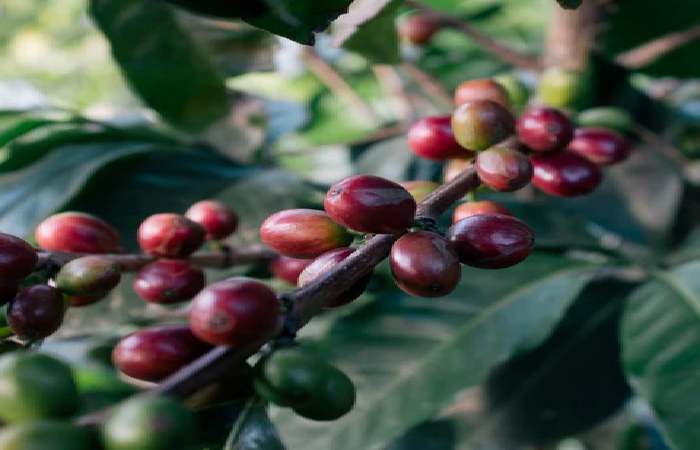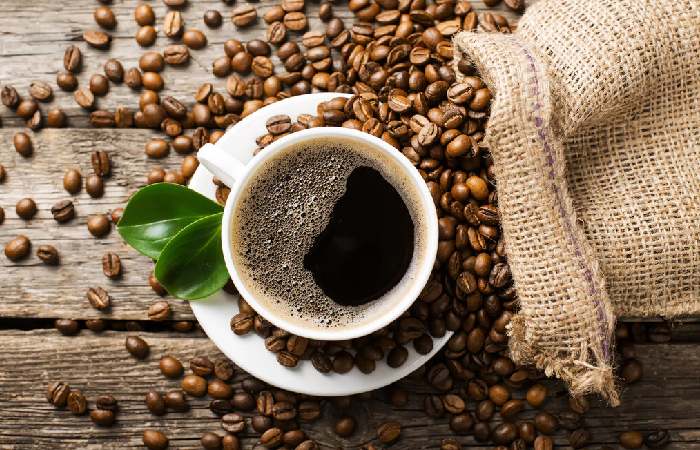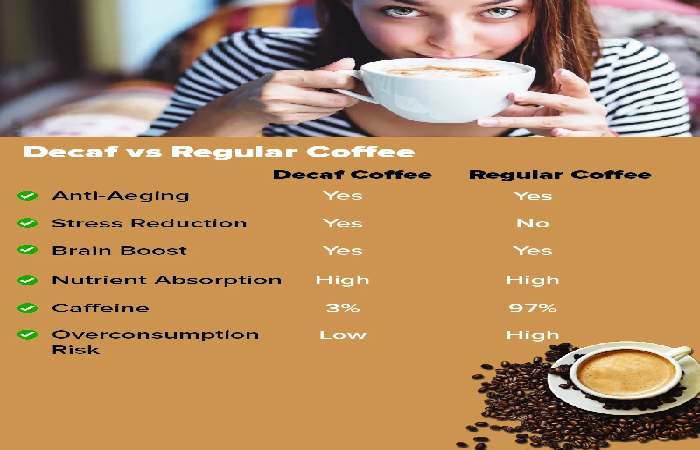Decaf Coffee, is prepared from coffee beans from which most of the caffeine has been extracted. The process often includes steaming the beans and employing solvents or water to de caffeine so that it yields a beverage that offsets much of the original coffee’s taste with only a fraction of caffeine – about 2 to 5 gm per serving as opposed to the 95 gm or even more contained in a regular cup of coffee.
Decaf is an excellent variant for people drawn by the delicate taste of coffee but prefer to avoid caffeine for health problems, sensitive stomachs, or to have coffee after dinner. It is available in different forms, such as ground coffee for regular use, whole beans, and single pods for brewing. Even when, to some, decaf may have a reputation for being the less flavorful coffee of the two, many enthusiasts of the drink enjoy the number of beans that are offered and the selection of roasts and blends with taste in mind. On balance, decaffeinated variety helps those who cannot give up the consumption of their favorite cup of coffee but do not want to have the jitters!
What Is Decaf Coffee And How Is It Made?

Decaf means that it is coffee that has been decaffeinated. It is coffee brewed from beans that have had most of their caffeine extracted, at least to a level of three percent. Coffee beans can be prepared using several methods. After trying different methods of decaffeinating the coffee, I used the Swiss water method to get the best result. About one of them, most reactions require water, organic solvents, or carbon dioxide (1Trusted Source).
Caffeine is separated with the help of the solvent, which is used to wash the coffee beans and then evaporate the solvent.
How Much Caffeine Is In Decaf Coffee?

Decaf coffee ranges between 2 and 5 milligrams of caffeine per cup, and an 8-ounce cup of regular coffee has 95 milligrams of caffeine. The degree can depend on the type of beans, the kind of brand, and the preparation method, but decaffeinated is much less caffeine.
Health Benefits Of Decaf Coffee

While the has was seen in some not-so-distant past as something to be avoid at all costs, the truth is, most coffee is good for you. It has been associate with many health-boosting characteristics, mainly due to its antioxidant capacity and other active compounds. Nevertheless, what is good or bad for decaf coffee’s impact on human health remains ambiguous. It is because virtually all the studies above compare coffee consumption without making a differentiation for decaffeinated coffee, and some do not even incorporate decaffeinated coffee in their research at all. Moreover, the majority of these investigations are cross-sectional. They can only show that people who consume coffee develop those benefits, not that coffee made it happen.
Who should choose decaf over regular coffee?
That is true. Tolerance level to caffeine varies depending on the individual. What may be too much for some may be tolerable by the rest, and this is specifically true of coffee. Even if people’s tolerance levels for caffeine are different, perfectly healthy people need not have more than 400 milligrams of caffeine in one day. Coffee drinkers: This is roughly the equivalent of four cups of your typical Joe. Frequent enhancement can result in high blood pressure and insomnia, which are resulting in heart ailments and stroke.
It can also overload the central nervous system and cause restlessness, anxiety, stomach aches, heartbeat irregularities, and problems sleeping in individuals who are sensitive to caffeine. Individuals physically sensitive to the effects of caffeine should reduce their consumption of regular coffee or opt for decaffeinated or tea. They must also follow specific, low-caffeine diets for certain disease-related health conditions. It includes those who are under prescription medication since most of them can have harmful complications when taken along with caffeine.
Resolve decaf coffee keep me awake?
Well that’s unlikely to happen but it all depends with the amount of coffee you have. This is so, due to caffeine’s half life being about five hours, which means if you have 100mg of caffeine at 10AM it will only be around 50mg by 1PM. Because then decaffeinated coffee is only approximately.1% as strong as caffeinated coffee, two cups of decaf should not have that same effect. However, your tolerance level depends on more parameters such as; age, sex, your weight, regularity of your caffeine intake and your general body constitution.
Conclusion
The most important thing to caffeine than a regular coffee and is just as tasty. However, everything in moderation; people should strive to live healthier lives possible as they go out seeking these calories. As for something stronger, it’s not a bad idea to have some caffeinated coffee if you want a more powerful boost or if you are having trouble getting through the day and will get tired; but try not to overdo it to avoid the bad side effects of having a headache or getting jitters.

